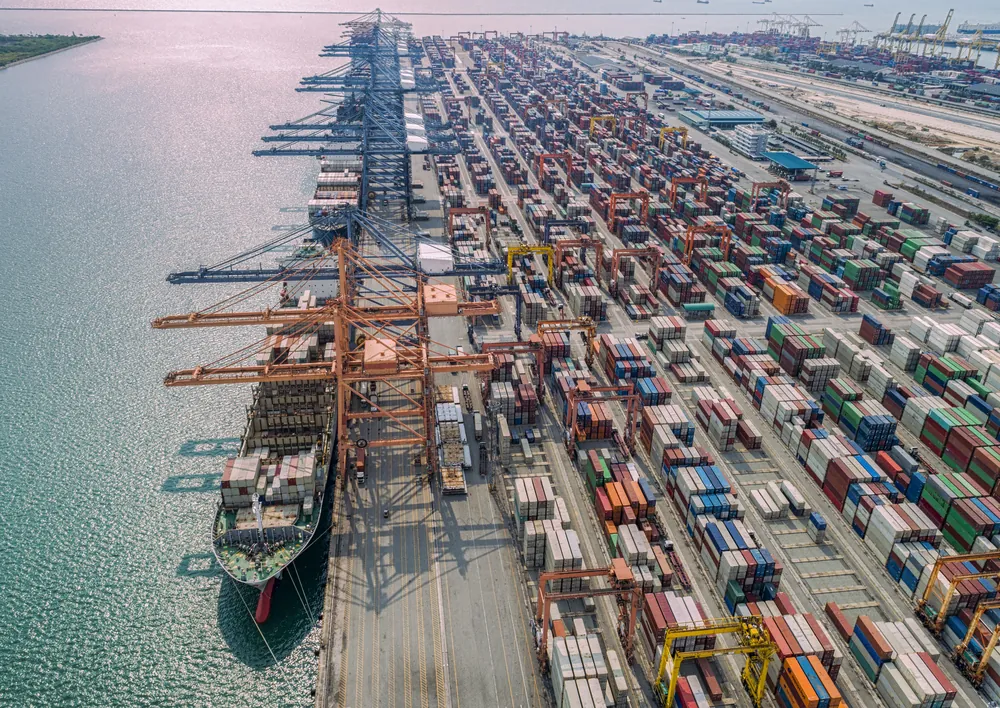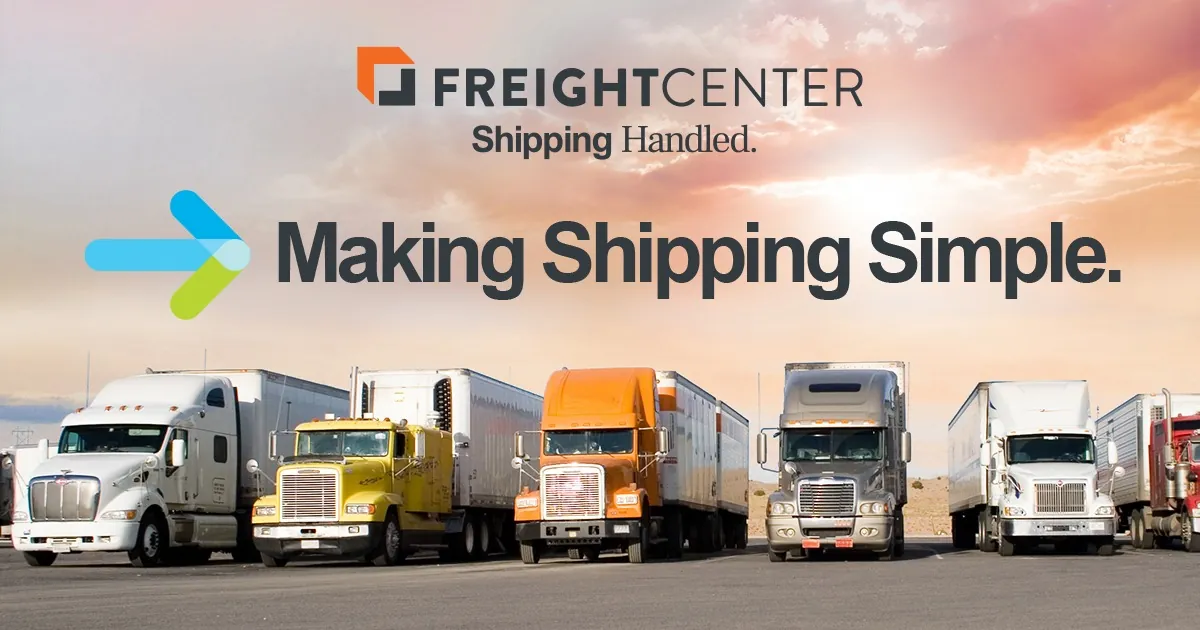
Understanding Freight Forwarding
This page provides information about freight forwarding services, explaining what freight forwarding is, its benefits, and how it differs from other shipping options.
Freight Forwarding
As a shipper, have you ever wondered about the difference between freight brokers and freight carriers? Or have you believed the two terms to be synonymous, with both words being used interchangeably? Crazy enough, these terms do NOT mean the same thing. While freight forwarding and brokering services can seem very similar, they represent different services.
Let’s begin by clarifying what a freight broker is and is not. A freight broker connects carriers and shippers. They do not claim any responsibility for the freight and do not possess the shipment. Freight Brokers are not liable for any resulting damages or claims. When working with a freight broker, the shipper is responsible for purchasing their insurance for the shipment. Read on to find out how these services differ and how each one can potentially meet your needs.
We provide competitive freight shipping prices and an all-inclusive, easy-to-use shipping experience for our customers. Exceeding our customers’ expectations results in thousands of satisfied customer reviews and repeat business. We believe in the power of our customer relationships. Check out FreightCenter reviews from real customers, and learn what they have to say about their freight shipping experience!
- 2021, 2017 & 2016 Food Logistics’ Top Green Providers
- 2021 & 2018 Supply & Demand Chain Executives’ Pros to Know: Matthew Brosious
- 2020 & 2019 Top Food Logistics’ 3PL & Cold Storage Provider Award
- 2020 & 2019 Business Observer’s Top 500 Companies on the Gulf Coast
- 2020 & 2017 SmartWay® Transport Partner
- 2020 & 2017 Food Logistics’ Champions: Rock Stars of the Supply Chain
- 2020 Best of Palm Harbor Awards for Local Businesses
- 2017 Green Supply Chain Award from Supply & Demand Chain Executive
- 2017 Tampa Bay Business Journal Heroes at Work
- 2016, 2015, & 2012 Food Logistics Top 100 Software and Technology Providers
- 2013 Tampa Bay Business 100 by Tampa Bay Business Journal
- 2013 Top 100 Great Supply Chain Partners by SupplyChainBrain
- 2012 TIA Samaritan Award Honorable Mention
- 2012, 2011 & 2010 TBBJ Fast 50 Recipient
- 2013, 2011, & 2010 Diversity Business Top Businesses

Why Choose FreightCenter For Your Shipping Needs?
- Shipping quotes anytime
- Get freight shipping quotes to anywhere in the U.S. & Canada.
- Unbeatable discounts on your freight LTL, truckload, rail, air, and more
- Automated freight tracking, paperwork & invoices
- Manage all quotes & shipments in one place
- 24+ years of logistics experience working for you!
Your One Stop Shop for Shipping Freight
We offer large volume discounts from today’s top U.S. trucking companies. Our services are a total freight solution (not just freight forwarding) for all your transport needs, whether it’s in the first or last mile. Our dedicated freight agents will handle all booking, paperwork, and scheduling for you. They can assist with recommending the best fit carrier, with online tracking provided for every shipment.
Get a free online quote today, or get in touch with one of our expert agents at 800.716.7608.
Freight Forwarders VS Freight Brokers
Freight Forwarders are intermediaries between carriers and shippers; they are the middleman. Freight Forwarders specialize in arranging cargo on behalf of shippers, offering various transportation and supply chain services.
These services include:
- Ocean/air freight transport
- International/domestic shipments
- Warehousing/storage
- Consolidation/deconsolidation
- Cargo insurance
- Customs compliance
In contrast to freight brokers, freight forwarders will store freight in warehouses for customers, ship under their bill of lading, and are responsible for the insurance of shipments.
Freight Forwarders also are not responsible for actually moving the cargo. Aside from these critical differences, freight forwarders provide the same services freight brokers offer. Freight forwarders utilize established relationships to negotiate with carriers. This allows forwarders to deliver the most cost-effective, time-efficient, reliable carrier option for the lowest cost. In a nutshell, freight forwarders streamline logistics by arranging pickups, drop-offs, rerouting, storage, documents, insurance, and physical responsibility. Their services, utilized by many, are quintessential to the supply chain industry.
While Freight Forwarding can be a valuable and convenient service, as with any option, it has pros and cons.
Pros:
- Lowering prices by consolidating cargo,
- Specializing in a specific market,
- Service
- Transportation mode
- Allowing for greater control over the shipment
- Handling documentation/taxes/tariffs
- Specific trade-related services.
Cons:
- Freight forwarders are not operating the transport of your cargo, so as far as the occurrence of damages, that is out of their control.
- Their role during the transit is hands-off, despite being held responsible for the freight.
- Since the Freight Forwarders usually are not involved in the physical transit, damages can still occur.
- When shipping with a Freight Forwarder, it is not uncommon for them to markup services leaving you none the wiser.
To create value for our customers by delivering customized shipping solutions that meet their unique needs and to fulfill shipping demands from simple to complex with expertise, guidance and ingenuity.
LTL shipping involves combining multiple small shipments from different customers onto one truck, allowing each customer to share the shipment cost. Trust the experts at FreightCenter to give you the best prices and the most comprehensive options for all your LTL freight shipping needs.
Truckload shipping, also known as full truckload (FTL), is a transportation option for freight that requires the entire trucks trailer space. Unlike LTL shipping, FTL shipping is reserved for larger commodities that exceed LTL weight and size limits, typically weighing more than 20,000 pounds or having dimensions that exceed 12 feet in length, 8 feet in width, and 8 feet in height. We deliver optimized solutions for full or partial truckloads and competitive dry van, flatbed, and refrigerated freight pricing. We can cover your full truckload shipping needs.
Nationwide Expedited Trucking services move your freight securely and rapidly. Your freight requires fast delivery; our freight shipping experts can get your shipment fast, whether in one large box or a full truckload. Expedited shipping is a transportation option that prioritizes the speed of delivery for freight that needs to be shipped quickly. This can be especially important for urgent situations, such as engine repairs or replacements for critical machinery.
The most reliable Specialized Freight Services rates from all the top carriers are just a few steps away. From white glove service to international shipping, we've got you covered.


History Of Freight Forwarding
One of the earliest freight forwarders was Thomas Meadows and Company Limited of London, England, established in 1835. According to “Understanding the Freight Business,” written and published by the executive staff of Thomas Meadows and Company in 1972, the advent of reliable rail transport and steamships created a demand for the fledgling freight forwarding industry. Trade developed between Europe and North America, creating additional demand. The first international freight forwarding was done by innkeepers in London who held and re-forwarded the personal effects of their hotel guests.
The original function of freight forwarding was to arrange for carriage by contracting with various carriers. Freight Forwarding responsibilities included advice on documentation and customs requirements in the country of destination. His correspondent agent overseas looked after his customers’ goods and kept him informed about matters affecting the movement of goods.
In modern freight forwarding, the forwarder accepts the same responsibilities. It operates as a domestic carrier with a corresponding overseas agent or branch office. In a single transaction, the forwarder may act as a carrier (principal), agent for his customer, or both.
Freight Forwarding FAQ
Q. What is freight forwarding?
A. Freight forwarding is a service businesses use to transport goods from one place to another. It involves coordinating with freight carriers, using the most efficient routes, and considering any regulations or restrictions that may apply to the shipment. By working with a freight forwarder, businesses can ensure their shipments are delivered on time and in good condition.
Q. What services do freight forwarding companies provide?
A. Freight forwarding companies provide a wide range of services, including finding the right carrier for your shipment, ensuring all regulatory requirements are met, providing storage solutions if needed, and tracking information so customers can follow their shipments every step of the way.
Q. How do freight forwarders differ from brokers?
A. While both offer similar services when it comes to transporting goods from one place to another, there are some key differences between them. Brokers act as intermediaries between shippers and carriers but don’t typically take care of actual shipments themselves whereas freight forwarders handle all aspects of shipping process from start to finish.
Q. Is it necessary for international shipping needs?
A. It is necessary to work with a freight forwarder for international shipping. This is because they specialize in navigating the complexities of international shipping regulations, which ensure that shipments arrive safely and on time.
Q. What kind of tracking services do freight forwarding companies provide?
A. Freight forwarding companies typically provide customers with real-time tracking information so that they can monitor their shipments every step of the way. This information helps businesses stay current on the status of their shipments and ensure that everything is running smoothly.
Q. Are any additional benefits of working with a reliable freight forwarder?
A. Many freight forwarding companies offer additional services that can help businesses save time and money. This includes providing consolidated shipping services, discounts on shipment costs, and access to information about import/export laws in different countries. With the right partner, businesses can reap all of these benefits and more.
Q. How is freight forwarding different from transportation?
A. Freight forwarding and transportation are often used interchangeably, they have distinct differences. Freight forwarding involves a service that facilitates the movement of goods from one location to another on behalf of a company or individual. On the other hand, transportation refers to the physical movement of goods from one place to another.
